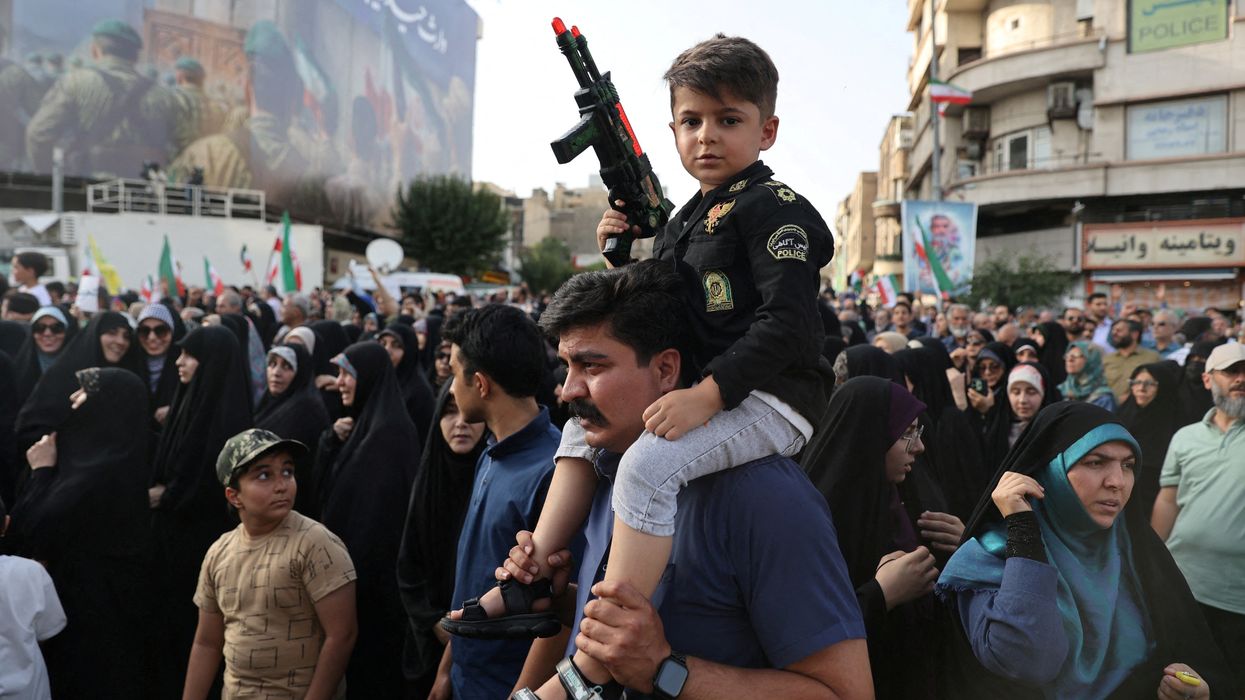IRAN on Monday warned of “serious” consequences following US air strikes on its nuclear facilities, as its ongoing conflict with Israel entered the 11th day.
Despite international calls for de-escalation, aerial attacks continued. Air raid sirens were heard across Israel, and AFP reporters confirmed several blasts over Jerusalem.
The Israeli military said it had hit missile sites in western Iran and destroyed fighter jets and helicopters at six Iranian regime airports.
US president Donald Trump said American warplanes used “bunker buster” bombs to strike facilities in Fordo, Isfahan and Natanz. “Obliteration is an accurate term,” he said, claiming the attacks had “obliterated” Iran’s nuclear capabilities.
Other officials said it was too early to assess the full extent of the damage to Iran’s nuclear programme, which is seen by Israel and some Western countries as a key threat.
Iran calls strike a hostile act
Iran’s armed forces spokesman Ebrahim Zolfaghari said on state TV that the US “hostile act”, which followed over a week of Israeli bombardments, would lead to a broader conflict.
“The fighters of Islam will inflict serious, unpredictable consequences on you with powerful and targeted (military) operations,” he said.
Oil prices jumped over four per cent early Monday as markets reacted to the escalation. China called on both Iran and Israel to prevent the conflict from widening.
Oman, a mediator in stalled nuclear talks between Iran and the US, condemned the American strikes and appealed for calm.
Iran’s foreign ministry accused the US of undermining diplomatic efforts. “Future generations will not forget that the Iranians were in the middle of a diplomatic process with a country that is now at war with us,” ministry spokesman Esmaeil Baqaei said.
Britain, France and Germany jointly urged Iran to avoid any further actions that could destabilise the region.
Iran’s supreme leader Ayatollah Ali Khamenei called Israel’s bombing campaign, launched on June 13, “a big mistake”.
US issues alert as tensions rise
US secretary of state Marco Rubio urged China to help prevent Iran from closing the Strait of Hormuz, through which one-fifth of the world’s oil flows.
With Iran threatening US bases in the region, the State Department issued a global alert for Americans overseas.
In central Tehran, protesters gathered on Sunday waving flags and chanting against US and Israeli strikes.
In Semnan province, east of Tehran, 46-year-old housewife Samireh told AFP she was “truly shocked” by the attacks. “Semnan province is very far from the nuclear facilities targeted, but I'm very concerned for the people who live near,” she said.
Iranian president Masoud Pezeshkian said the US strikes showed Washington was backing Israel in its campaign against Iran and promised a response.
Trump hints at regime change
The Pentagon said the US did not intend to overthrow Iran’s government, but Trump made comments suggesting otherwise.
"It's not politically correct to use the term, 'Regime Change,'" he wrote on Truth Social. "But if the current Iranian Regime is unable to MAKE IRAN GREAT AGAIN, why wouldn't there be a Regime change???"
He later repeated his claim of success. “Monumental Damage was done to all Nuclear sites in Iran, as shown by satellite images. Obliteration is an accurate term!” he wrote, without releasing any images.
Top US general Dan Caine said in a Pentagon briefing that all three sites had suffered “extremely severe damage”.
Israeli prime minister Benjamin Netanyahu said Israel would stop its attacks once its goals were met. “We are very, very close to completing them,” he said.
IAEA calls for restraint
According to Iran’s health ministry, more than 400 people have died in Israeli strikes on Iran. Iran’s attacks on Israel have killed 24 people, according to official figures.
Rafael Grossi, head of the International Atomic Energy Agency, told the UN Security Council that craters were visible at the Fordo facility but said it was not yet possible to assess underground damage. “Armed attacks on nuclear facilities should never take place,” he said.
Iranian foreign minister Abbas Araghchi, scheduled to meet Russian president Vladimir Putin on Monday, said the US had chosen to “blow up” nuclear diplomacy by joining the war.
Russia condemned the US and Israeli strikes but has not offered military support. It has also downplayed its commitments under a recent strategic agreement with Iran.
Russia, China and Pakistan circulated a draft resolution in the UN Security Council calling for an “immediate ceasefire” in Iran.
(With inputs from agencies)





